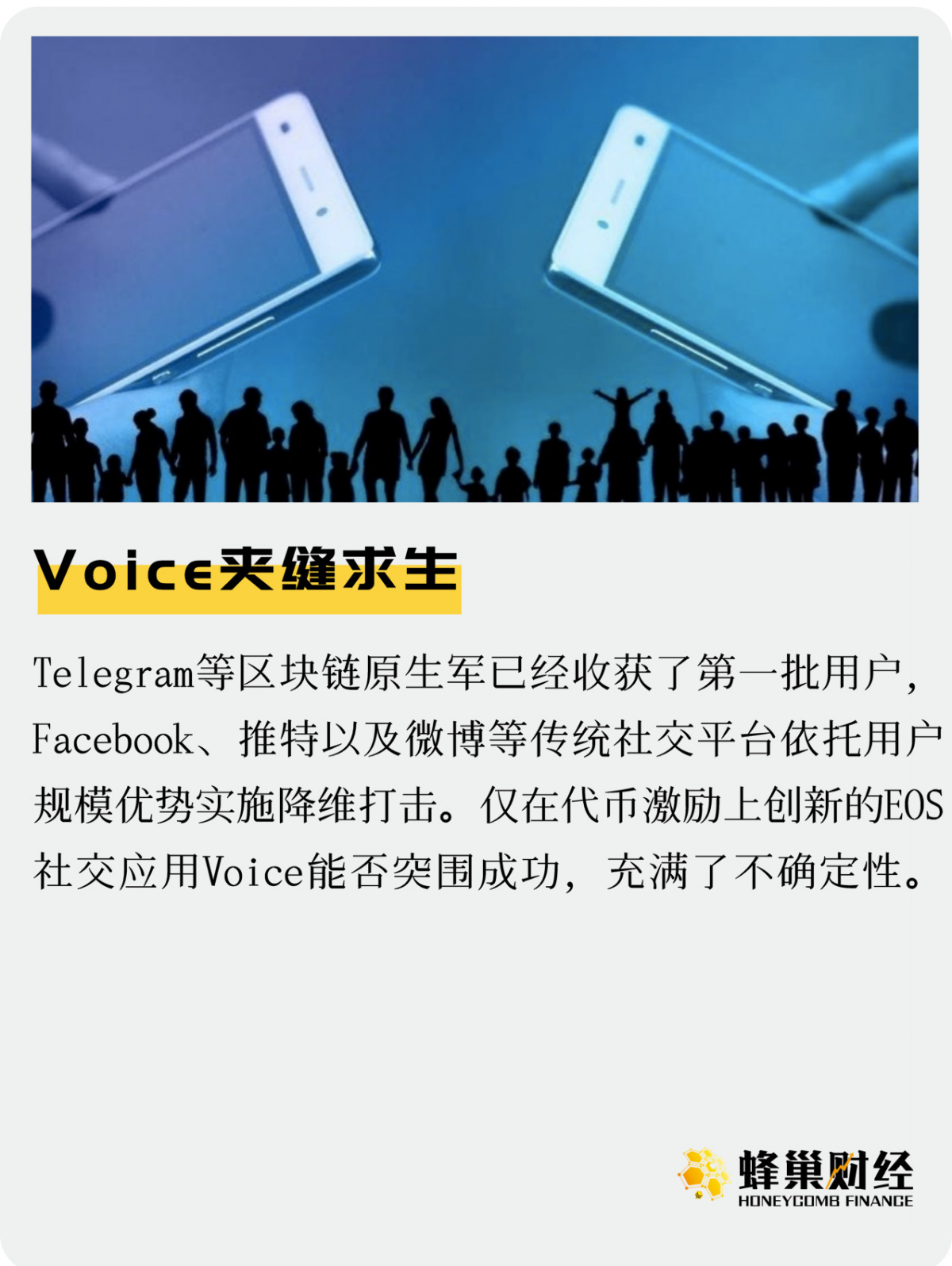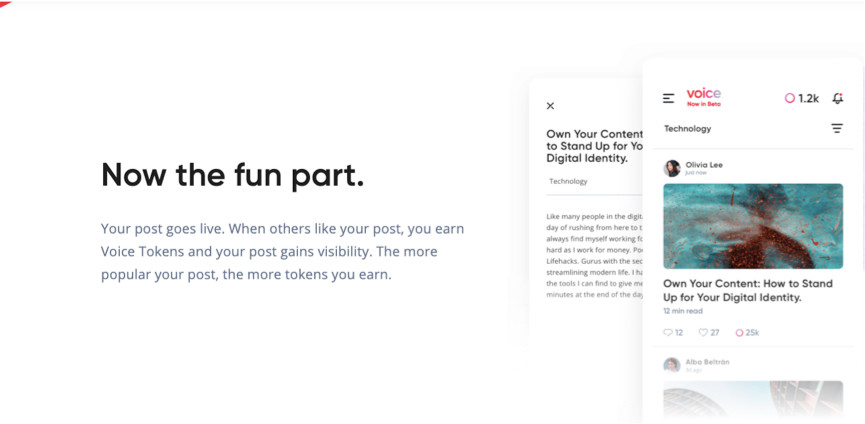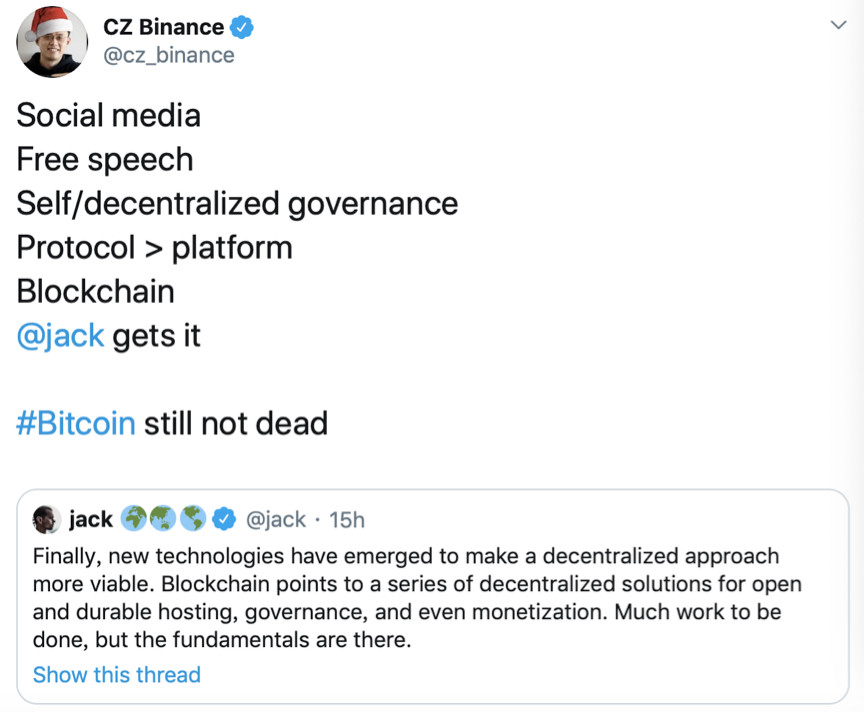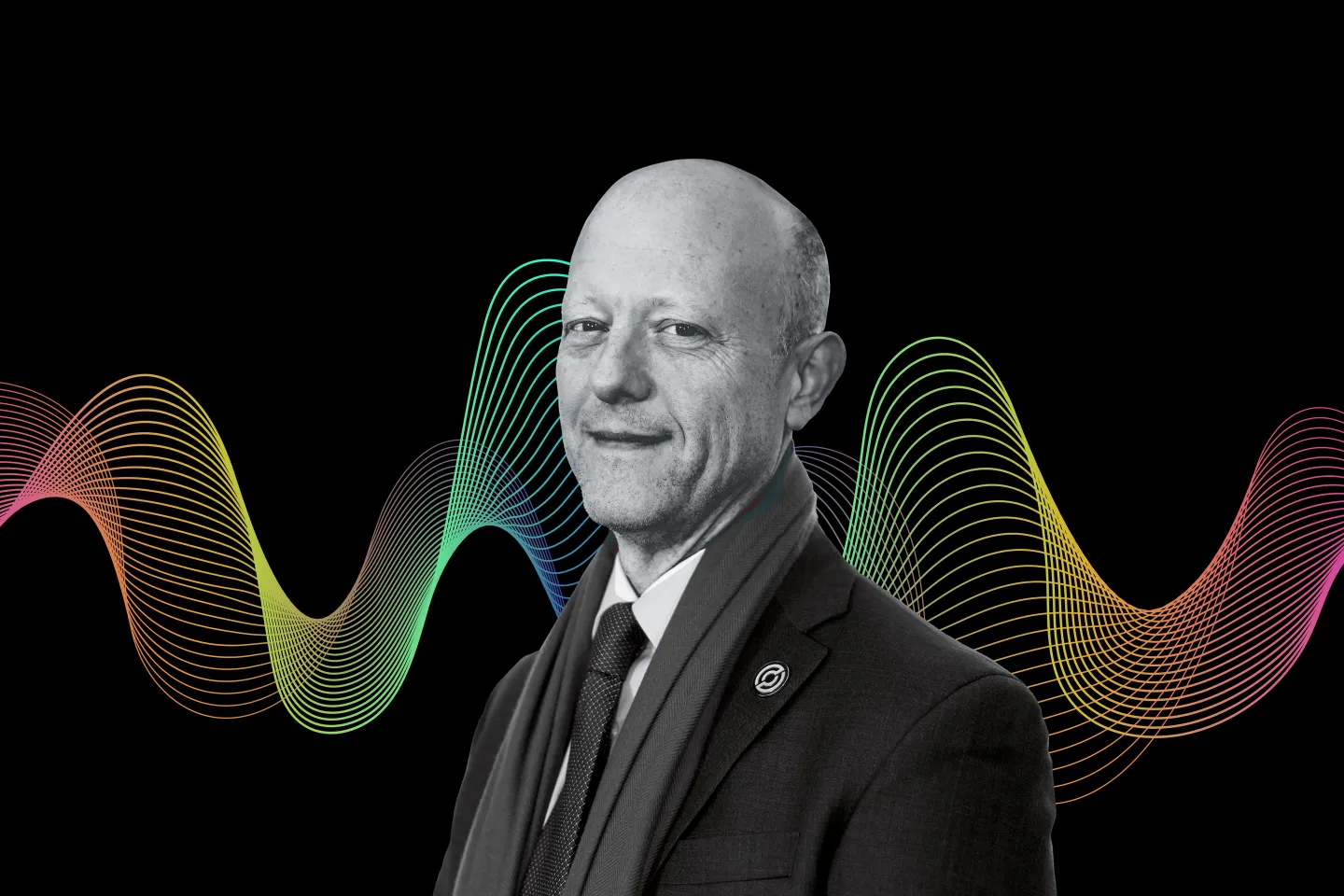KYC provokes questions, FOMO gameplay encourages users to "voice": Voice cracks for survival

Voice is a project that Brendan Blumer focuses on, and began to brew in June last year. EOS investors have been expecting this application to drive the price of EOS up, but since its launch on February 14, the price of EOS has fallen from $ 5.4 to $ 3.8, a drop of more than 20%.
Voice is not good enough to drive, but instead raises questions about privacy leaks. The Voice platform ’s claim to strictly control KYC is to focus on the authenticity and openness of the content. "KYC can screen out robots that release information according to business needs."
It is not difficult to sort out the social media and communication applications related to the blockchain. Voices with social media attributes pay more attention to the quality and authenticity of content, while communication applications such as Telegram pay more attention to protecting personal privacy.
- When will 1 billion Ethereum transactions occur?
- Is this really decentralized? Community announces the destruction of $ 132 million EOS, Block.one is unaware
- Viewpoint | Does Blockchain Need Traffic Thinking?
Despite the different paths, there are not many players on the blockchain + social track. Telegram has seized the main users of the blockchain, and traditional social platform forces such as Facebook, Weibo, and Twitter are also relying on user advantages to participate in different forms. In the battle for blockchain + social. Voice is not under pressure.
Voice KYC questioned
Voice did not launch as expected by the market, driving EOS prices up.
On February 14th, Voice opened registration to US users. OKEx quotes indicate that EOS began to fall that day. As of February 25th, the US $ 5.4 high from this year has fallen to US $ 3.8, a drop of more than 20%.
A week later, Voice drew questions about leaking privacy. On February 21, CryptoBriefing reported that Voice's KYC mechanism triggered a privacy alarm. Managing Voice user information is a UK-based company, HooYu. According to the report, although the company claims that its privacy policies and practices are in compliance with the European General Data Protection Regulation (GDPR), after in-depth research, it was found that personal data managed by HooYu can be used to confirm someone's identity and "prevent and detect crime" .
Voice's official website specifically explained the reason for setting up strict management of KYC. It claims that paid robots on social media will affect the authenticity of the content. Voice must maintain the authenticity of the content. Transparency and integrity are the key.
The CEO of the blockchain social sharing community tata Zheng Zhengyu believes that the main contradiction in exploring the privacy of users is not collecting information, but how to manage it, and whether the management authority is returned to users. "Anonymity is the result of blockchain products. One of the features, but not all products on the blockchain must be anonymous. Sometimes collecting some user information for authentication can help the platform better serve users. "
Voice's official website also writes that Voice works with trusted third parties to securely authenticate users. With a few exceptions, user information is used only by the provider to verify the user's identity, and will not be shared with anyone else. Delete automatically after time.

Voice says user information will be automatically deleted after a period of time
Block.one CEO Brendan Blumer also suggested that it is unrealistic to completely deviate from censorship when discussing the governance of Voice with users. "Societies use different forms of consensus to formulate rules to protect the things that are most important to us, but technically limit the absolute The trick is to achieve the right balance. "
In other words, Voice solves the issue of authenticity and openness of the content presented by the user, rather than protecting the privacy of the user.
This may be related to Voice's own attributes. It can be seen from the official website that Voice functions similar to Twitter and Weibo, and the content posted by users is visible to everyone, more like an open social media.
For Voice ’s KYC design, Zi Cen, head of the Hello EOS node, believes that it is difficult to say that Voice attaches more importance to protecting privacy. The focus may be on social media creation, traffic, and corresponding rewards. “Voice is a huge The traffic pool attracts many traffic stars and has a positive publicity effect on EOS. Due to the influence of the BTC market, Voice's promotion of the EOS currency price cannot be estimated. "
FOMO gameplay encourages users to "speak"?
In fact, open social media is an area familiar to Brendan Blumer. Before starting EOS, he created Steem, a decentralized content distribution community.
At present, Steem is still the main position of social applications. Of the 144 dApps included in DappReview, 67 are based on Steem, which is close to half of the total.
However, from the perspective of user activity, the market for these DApps is not high. Among them, Steemit, which has the highest number of user activities in 24 hours, is only 2,300.
Steemit is a social media platform based on Steem. Users publish content and get token rewards, similar to Voice.
On Steemit, there will be three types of tokens in total, one is Steem Power, which is equivalent to energy. The higher the value, the easier it is for users to post on the top, the higher the exposure, and the easier it is to get more rewards. Steem Dollars is the "fiat currency channel" in the entire Steem system. You can buy fiat currency and use it to purchase other services in the community. Steem Dollar is a main net coin similar to EOS and can be arbitrarily circulated in the system.
The three Token switching processes are complicated. First, you need to buy Steem Dollars with currency, and then exchange for the other two tokens. This exchange mechanism is often criticized by users.
In contrast, Voice's incentives have changed. The official website shows that users can get 3000 VOICE Tokens when registering. Since then, users can get VOICE Tokens by posting posts and getting approval from others. The higher the recognition, the higher the exposure of the post, and the more Token rewards the publisher receives.
After receiving the reward, users can consume VOICE and place their posts in a better exposure position. If someone continues to spend more VOICE top posts, the number of VOICE Tokens spent by the next user is greater than the previous one, and the previous one can get additional rewards. It is not yet specified how the additional rewards are calculated.

Vocie tokens have incentives similar to FOMO
This is a bit similar to a FOMO game. The revenue of players in the advanced field depends in part on the payment of players who enter the field. Voice encourages users to consume Tokens to put their posts in better exposure positions to get more rewards. The essence is that the more VOICE Tokens are consumed, the more rewards they can get.
The question is, once no users continue to pin their posts, the chain users will not get additional rewards. After the rewards are reduced, will users continue to spend VOICE Tokens to expose their published content? It is also possible that users manipulate the market in order to obtain more rewards. If you start with getting rewards, the quality of the content will be difficult to guarantee.
According to the official explanation, VOICE designed the reward mechanism to encourage users to obtain tokens to create content, so that everyone's "voice" has a chance to be heard.
Some users questioned VOICE's reward mechanism on Twitter, arguing that publishing content for the purpose of rewarding and consuming tokens to top the content would cause Voice to become a casino application rather than a content product.
In response, Brendan Blumer replied that in the future, Voice will also have reviews and advertising spaces. In the area of advertising platforms, users will bid for display spaces, which will bring free market pricing to the advertising process and allow users to collectively screen interesting content. And logo.
However, this is only the CEO's vision. At present, Voice is only available to users in the United States. No ads and comments have appeared. As to whether the function of bidding for advertising space and collective screening of the content has worked, it is unknown.
Entry of traditional social platforms crowds out Voice space
Currently, there is no shortage of content platforms on the blockchain + social track. If it's just the token hype, Voice can't rely on content to make a breakthrough.
On the contrary, applications with stronger communication attributes such as Telegram and Mixin Messenger have been recognized by some markets. Unlike Voice's emphasis on users' KYC, they were born to protect user privacy. Through encryption technology, users can send encrypted information end-to-end, and they do not need to provide personal information such as ID cards when registering.
Telegram was born for privacy. As users' communication information is difficult to monitor, there were rumors that Russia would block Telegram. The founder of Mixin Menssenger Feng Xiaodong mentioned that the establishment of Mixin Menssenger was also considered to solve the problem of user privacy leakage and reduce the interference of other business information to users.
In terms of token incentives, users currently do not have token incentives when using Mixin Messenger and Telegram, but this does not prevent users from using these two products.
Today, Telegram has become a gathering place for cryptocurrency users. Project parties, exchanges, and media industries have their own Telegram groups. Some teams communicate and cooperate with the outside world, all requiring each other to use Telegram. Mixin Messenger has become the main position for Li Xiaolai to start class "watering" the new leek.
Telegram, which has grown up based on blockchain technology, has been recognized by users.At the same time, traditional Internet social platforms are actively embracing blockchain.
On September 2 last year, Sina Weibo launched a social app “Oasis” with a token incentive. Users can collect “water droplets” on the app. The APP shows that water droplets are digital assets in the oasis social network, and are rewards for users who contribute value to the oasis. The storage is generated based on a decentralized model, which can be used later to redeem benefits, reward content, vote and vote.

Twitter CEO says plans to fund teams to create decentralized standards
Last December, Twitter CEO Jack Dorsey tweeted that Twitter plans to fund a new decentralized standard that may apply to all social media. "Twitter will focus on this project and if successful, it will Adopt this standard. "
Binance founder CZ reposted this tweet and commented that Jack understands that social media, free speech, decentralized governance, and blockchain all know that Bitcoin is not dead.
Social giant Facebook has even greater ambitions. It simply issued the cryptocurrency Libra, entered the payment market, and promoted Libra based on its users, which once attracted worldwide attention. However, round after round of hearings on Libra have also come one after another and have not yet received regulatory approval. Whether Libra, which claims to be launched in the first half of this year, is available, is unknown.
Blockchain natives such as Telegram are growing in the cracks, and traditional social platform forces such as Facebook, Twitter, and Weibo have implemented a dimension reduction attack relying on the scale of users. In the block-chain battle of social applications, Voice, which only relies on economic incentives, wants to stand out from the competition between new and old forces, and it is still a bit immature.
Do you think Voice has a place in social products?
We will continue to update Blocking; if you have any questions or suggestions, please contact us!
Was this article helpful?
93 out of 132 found this helpful
Related articles
- Babbitt Column | Can courts effectively penalize mining pools to roll back bitcoins to correct lost and stolen coins?
- Bitcoin has been hit hard for 14 hours and has fallen by 14%.
- Analyst observations | What is the correlation between Bitcoin and other assets?
- Bitcoin ETF rejected, "crypto mom" accuses SEC of "switching standards"
- Interview with Crypto Mom SEC Commissioner Hester Peirce: Analysis of Safe Harbor Proposal
- DeFi is about to welcome zk-SNARK privacy technology without trust: what is Supersonic's solution?
- Bitcoin fell below $ 8,600 overnight, and the entire network exceeded $ 879 million






